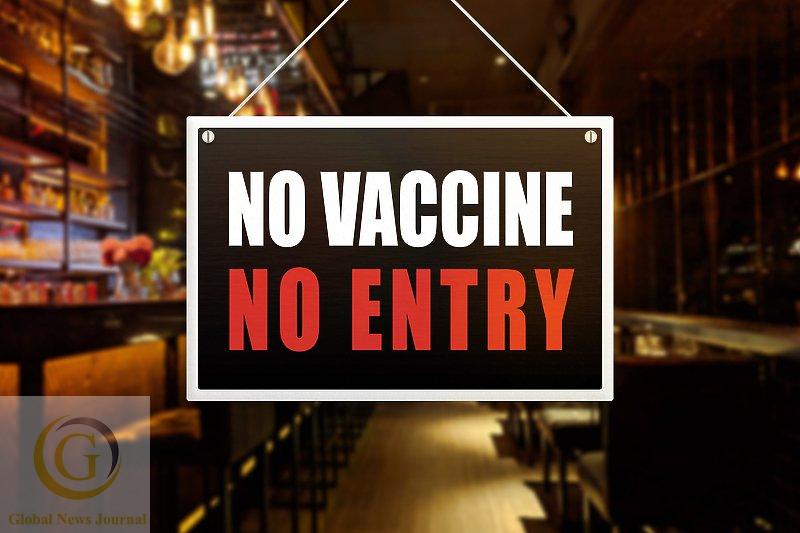Japan Declares COVID mRNA Vaccine “The Deadliest Drug in Human History”
Ready to uncover the truth? Sick of the lies? Join our Telegram Channel now. It’s time for the real story! My gratitude to all my readers!
Japan has declared COVID-19 mRNA vaccines as the deadliest drug in human history, urging accountability amid links to over two hundred severe diseases.
In a bombshell announcement that has sent shockwaves through the global community, leading Japanese scientists have officially labeled COVID-19 mRNA vaccines as the most dangerous pharmaceutical intervention ever deployed in human history. This unprecedented claim, backed by meticulous research and an alarming series of findings, points to the urgent need for accountability among those who orchestrated the widespread administration of these vaccines.
Recent studies reveal harrowing associations between COVID mRNA vaccines and substantial increases in over two hundred of the deadliest known diseases. The implications of these findings are nothing short of staggering, sparking fierce debates and renewed scrutiny on an international scale.
A Lede to Grasp Global Attention
This chilling revelation by Japan’s top researchers has not only raised the stakes in ongoing debates about vaccine safety but has reignited a global conversation about public health, medical ethics, and accountability. Their warning is clear: the repercussions of mRNA vaccination are potentially catastrophic, influencing nearly every conceivable aspect of human health.
The Evidence That Changed Everything
Japanese experts have based their dire assessment on comprehensive data and case studies. According to their findings, there is a pronounced correlation between the administration of mRNA vaccines and an upsurge in life-threatening diseases, ranging from cardiac complications and autoimmune disorders to neurological conditions. These correlations aren’t speculative; they are supported by hard numbers that paint a distressing picture of public health risks.
This data-driven approach has drawn attention because Japan is known for its meticulous research practices and robust medical community. When these experts speak, the world listens.
The Surge in Disease Rates: Unprecedented Spikes in Mortality and Morbidity
Since the global rollout of COVID-19 vaccines, the rates of serious diseases have surged dramatically. In Japan, authorities have reported spikes in conditions such as myocarditis, pericarditis, and various autoimmune diseases—illnesses that have historically been rare or manageable. More alarmingly, international reports echo these trends, suggesting that this phenomenon is not isolated but widespread.
These spikes are not confined to one demographic; rather, they span across age groups, from young, seemingly healthy individuals to the elderly. This breadth of impact has forced researchers to consider the possibility that mRNA vaccines could be affecting foundational elements of the immune system.
The Domino Effect: From Vaccination to Systemic Health Deterioration
One of the most startling revelations involves how mRNA vaccines may be triggering a domino effect within the body. Initial findings indicate that the vaccine’s synthetic spike proteins could be lingering longer than anticipated, disrupting normal bodily functions. This includes an increased propensity for blood clotting, inflammation in critical organs, and disruption in cellular processes. These cascading effects can lead to conditions that, once triggered, are hard to reverse.
Scientists have noted an unsettling trend: the more doses received, the more pronounced the risks. This has raised questions about the long-term safety of booster doses, particularly in vulnerable populations.
The Role of Transparency and Data Censorship
A major point of contention is how data related to vaccine safety has been managed and presented. Japanese scientists argue that if comprehensive data had been made widely accessible from the beginning, these troubling associations might have been recognized sooner. The handling of this information—especially in the age of rapid communication—has led to accusations of intentional obfuscation and widespread misinformation.
In numerous cases, data that contradicts the safety profile promoted by leading health organizations has been suppressed or ignored. This has eroded public trust, creating a chasm between official narratives and public perception.
A Call for Accountability
With these findings now coming to light, the scientific community in Japan is advocating for thorough investigations and legal actions against those responsible for approving and promoting the global distribution of these vaccines. Leading researchers have called for transparency and accountability at every level—from pharmaceutical companies to government health agencies.
Prominent voices in Japan are emphasizing that this is not simply about assigning blame but ensuring that similar oversights do not occur in the future. The aim is to hold decision-makers accountable and re-establish rigorous safety protocols that prioritize public well-being.
The Global Response: Outrage and Urgency
Around the world, reactions to Japan’s declaration have been swift and intense. In countries where vaccination has been heavily promoted, skepticism among the populace is growing. The outcry has reached medical boards, ethics committees, and even legislative bodies as calls for independent investigations mount.
Countries with historically stringent safety protocols are now reassessing their stances, reviewing vaccine data, and initiating studies to verify the Japanese findings. The collective realization that adverse effects may not only be more common than reported but potentially catastrophic has led to immediate policy reviews.
Unraveling the Mechanisms Behind mRNA Vaccine Risks
What makes mRNA vaccines so potentially hazardous? Japanese researchers have shed light on several key mechanisms:
- Immune Overactivation: These vaccines prompt an intense immune response that, while initially effective, could persist and potentially cause chronic inflammation.
- Spike Protein Stability: Unlike initial assumptions that synthetic spike proteins would rapidly degrade, evidence suggests they remain active for prolonged periods, affecting various tissues.
- Genomic Integration Concerns: Although disputed, there are studies raising the possibility of mRNA integrating into DNA, raising alarms about potential long-term genetic effects.
- Micro-clotting Issues: Micro-clots detected in the blood of vaccinated individuals could be contributing to long-term cardiovascular problems.
The understanding of these mechanisms provides a clearer picture of how such a severe warning from Japan could be justified.
A Crisis of Public Confidence
This revelation has done more than incite scientific debates—it has shaken the confidence of everyday people. Trust in health authorities has plummeted, particularly in communities already skeptical of institutional power. Polls indicate that public willingness to receive future vaccines has diminished considerably.
Mothers worry about vaccinating their children, young adults hesitate over booster shots, and seniors—once the first to line up—are now questioning the necessity of any future doses. The landscape of public health has been transformed, perhaps irrevocably.
Global Implications: Re-evaluating the Approach to Medical Safety
The ripples from Japan’s announcement are spreading worldwide, prompting a re-evaluation of how medical safety and efficacy are monitored. Regulatory bodies are under pressure to revisit the approval processes for new treatments and enforce stricter safety standards.
There’s also a growing push for broader vaccine injury compensation programs as affected individuals come forward with claims of severe adverse reactions. The sheer number of cases surfacing now is straining already-limited resources.
What Comes Next: The Search for Solutions
Experts are now urgently exploring potential solutions for those impacted by adverse reactions. Treatments to mitigate the effects of prolonged spike protein activity are being investigated, alongside novel approaches to reverse autoimmune responses triggered by mRNA vaccines.
Research into the long-term consequences is ongoing, as medical practitioners grapple with the challenge of caring for those affected by what some are calling “post-vaccination syndrome.”
Conclusion: A Moment of Reckoning
Japan’s formal declaration about the dangers of COVID mRNA vaccines is a watershed moment in the history of modern medicine. It signals not only the importance of revisiting the narratives that have driven public health policies but also the critical need for transparency and accountability in how we approach widespread medical interventions.
The road ahead involves grappling with uncomfortable truths and the responsibility of ensuring that history does not repeat itself. The world now looks to governments, medical authorities, and pharmaceutical companies for answers, resolutions, and, most importantly, meaningful change.
🚨 Japan Officially Names COVID mRNA Vaccine ‘Most Deadly Drug in History of Humankind’ 🇯🇵
In a stunning declaration, Japanese scientists have labeled COVID-19 vaccines the most deadly drug in the history of medicine, asserting that the individuals responsible for this global… pic.twitter.com/HIZMxgBhoY
— TPV Sean (@tpvsean) November 7, 2024
Our mission to champion democracy, freedom of speech, and patriotic values relies on the support of dedicated individuals like you. Your contribution is vital in helping us provide insightful analysis, uncover pressing issues, and inspire positive change in our nation.
Join us in our commitment to making a difference. Every donation counts and empowers us to continue our work in advocating for the values we hold dear.
Thank you for being a crucial part of our journey.

I’m a 33-year-old writer and the founder of World Reports Today. Driven by the timeless principles of democracy and freedom of speech, I use my platform and my writing to amplify the voices of those who uphold these ideals and to spark meaningful conversations about the issues that truly matter.






